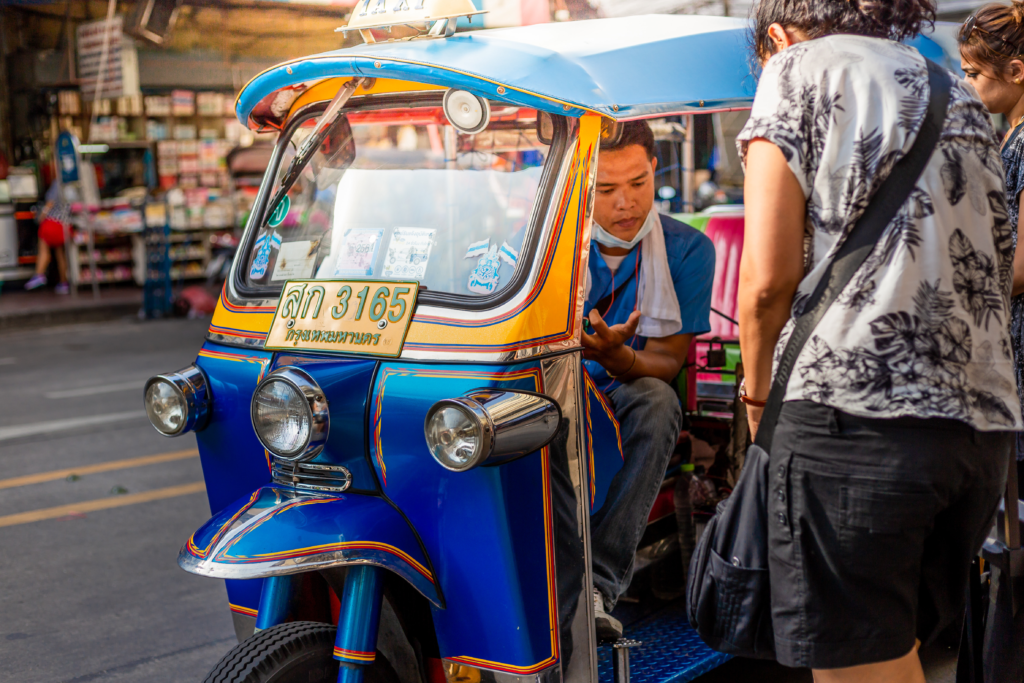Is Thailand Safe to Travel? 7 Eye-Opening Facts You Need to Know!
Is Thailand Safe to Travel? 7 Eye-Opening Facts You Need to Know!
Thailand is a dream destination for many, with its stunning beaches, vibrant culture, and mouth-watering cuisine. But if you’re planning a trip, you might be wondering: Is Thailand safe to travel? Let’s dive into seven crucial facts that will help you feel more confident about your journey.

1. Crime Rates and Safety Concerns
Thailand is generally safe, but like any other popular tourist destination, it has its share of petty crimes. Pickpocketing and scams are the most common issues, especially in tourist-heavy areas like Bangkok and Phuket. To stay safe, keep your belongings secure, be cautious of overly friendly strangers, and avoid flashing valuables.
2. Natural Disasters
Thailand is prone to some natural disasters, particularly during the rainy season from May to October. Flooding, landslides, and tropical storms can occur, especially in coastal and mountainous regions. If you’re traveling during this time, it’s essential to stay updated with weather forecasts and heed any local warnings.
3. Health and Medical Facilities
Thailand has excellent healthcare facilities, particularly in larger cities and tourist areas. Hospitals in Bangkok and Chiang Mai are top-notch and can handle most medical emergencies. However, rural areas might have limited facilities, so it’s wise to carry basic medical supplies and have travel insurance that covers medical emergencies.

4. Road Safety
Road accidents are a significant concern in Thailand. The country has a high rate of traffic accidents, with motorbike crashes being particularly common. If you plan to rent a motorbike, always wear a helmet, and be extra cautious on the roads. Stick to well-known rental agencies, and don’t forget to check if your travel insurance covers motorbike accidents.
5. Political Stability
Thailand has experienced political unrest in the past, with protests and demonstrations sometimes turning violent. However, these events are usually localized and don’t affect the entire country. Stay informed about the political climate, avoid large gatherings, and follow the advice of local authorities and your embassy.
6. Local Laws and Customs
Thailand is a country with deep-rooted traditions and customs. While the locals are generally welcoming and friendly, it’s crucial to respect their culture. Dress modestly when visiting temples, and be mindful of local laws—especially those related to drug use, which carry severe penalties. Remember, even something as minor as littering can result in a fine.

7. Solo Female Travel
Thailand is a popular destination for solo female travelers, and most women report having a safe and enjoyable experience. However, it’s important to exercise the same precautions you would anywhere else. Stick to well-lit areas at night, avoid accepting drinks from strangers, and trust your instincts. If something feels off, don’t hesitate to remove yourself from the situation.
Final Thoughts
So, is Thailand safe to travel? Absolutely! By staying aware of your surroundings, respecting local customs, and taking the necessary precautions, you can enjoy everything this beautiful country has to offer without unnecessary worry. Whether you’re exploring the bustling streets of Bangkok or lounging on a serene beach in Koh Samui, Thailand is a destination that promises unforgettable experiences.
Ready to pack your bags? Remember these tips, and you’ll be well on your way to an amazing adventure in the Land of Smiles!
8. Dealing with Scams: What to Watch Out For
Thailand, like many tourist hotspots, has its fair share of scams aimed at unsuspecting travelers. Common scams include tuk-tuk drivers taking you on a “tour” to overpriced shops, fake gem stores, and the infamous “closed temple” ruse, where someone tries to convince you that a popular attraction is closed so they can take you elsewhere (for a fee, of course). To avoid these scams, do some research before heading out, use reputable tour operators, and always trust your instincts. If something feels too good to be true, it probably is.

9. Respecting the Wildlife
Thailand is home to incredible wildlife, from majestic elephants to colorful marine life. However, not all tourist attractions involving animals are ethical. Avoid participating in activities like elephant riding or visiting tiger temples, as these often involve cruelty to animals. Instead, look for sanctuaries that focus on conservation and animal welfare. Engaging in responsible tourism ensures you have a memorable experience while also protecting Thailand’s precious wildlife.
10. Staying Connected: Internet and Communication
Staying connected in Thailand is generally easy, with Wi-Fi available in most hotels, cafes, and even some public spaces. However, for more reliable access, especially if you plan on traveling to more remote areas, consider purchasing a local SIM card. Major providers like AIS, TrueMove, and DTAC offer affordable data packages that will keep you connected throughout your trip. This can be particularly useful for navigating, staying in touch with loved ones, or even just sharing your adventures on social media.
11. Water Safety: Swimming and Drinking
Thailand’s beautiful beaches and crystal-clear waters are hard to resist, but it’s important to be mindful of water safety. Strong currents, jellyfish, and even rip tides can pose risks in certain areas. Always swim in designated areas, heed warning flags, and ask locals about current conditions if you’re unsure. Additionally, while tap water in Thailand is generally not safe to drink, bottled water is widely available and inexpensive. Stick to bottled water for drinking and brushing your teeth to avoid any unpleasant stomach issues.

12. Nightlife and Entertainment: Partying Safely
Thailand’s nightlife is legendary, from the full moon parties of Koh Phangan to the vibrant bar scenes in Bangkok and Pattaya. While it’s easy to get caught up in the excitement, it’s important to party responsibly. Keep an eye on your drinks to avoid spiking, don’t accept drinks from strangers, and always have a plan to get back to your accommodation safely. If you’re going out with friends, look out for each other, and if you’re alone, let someone know where you’re going.
13. Budgeting: How to Travel Safely Without Breaking the Bank
Thailand is known for being a budget-friendly destination, but it’s still important to manage your money wisely to avoid running into any issues. Always carry a mix of cash and cards, as some places may not accept cards. Use ATMs located in safe, well-lit areas, preferably attached to banks. Be aware of common tourist traps that can inflate prices, such as inflated taxi fares or overpriced food in tourist areas. Budgeting smartly will help you stretch your funds and enjoy more of what Thailand has to offer.
14. Getting Help: Who to Contact in Case of Emergency
In case of an emergency, knowing who to contact can make all the difference. The general emergency number in Thailand is 191, which connects you to the police. For medical emergencies, you can dial 1669 for an ambulance. If you lose your passport or encounter legal issues, your embassy or consulate should be your first point of contact. Having these numbers saved on your phone, along with your travel insurance details, will ensure you’re prepared for any situation.
Wrapping Up Your Thai Adventure
Thailand is an incredible destination that offers something for every traveler, from serene beaches to bustling cities and everything in between. By staying informed and taking the right precautions, you can enjoy a safe, enriching, and unforgettable experience. Remember, the key to a great trip is balancing adventure with common sense. So go ahead, explore, indulge, and immerse yourself in the wonders of Thailand—but always keep safety in mind.
Happy travels, and may your journey through Thailand be as safe as it is spectacular!


